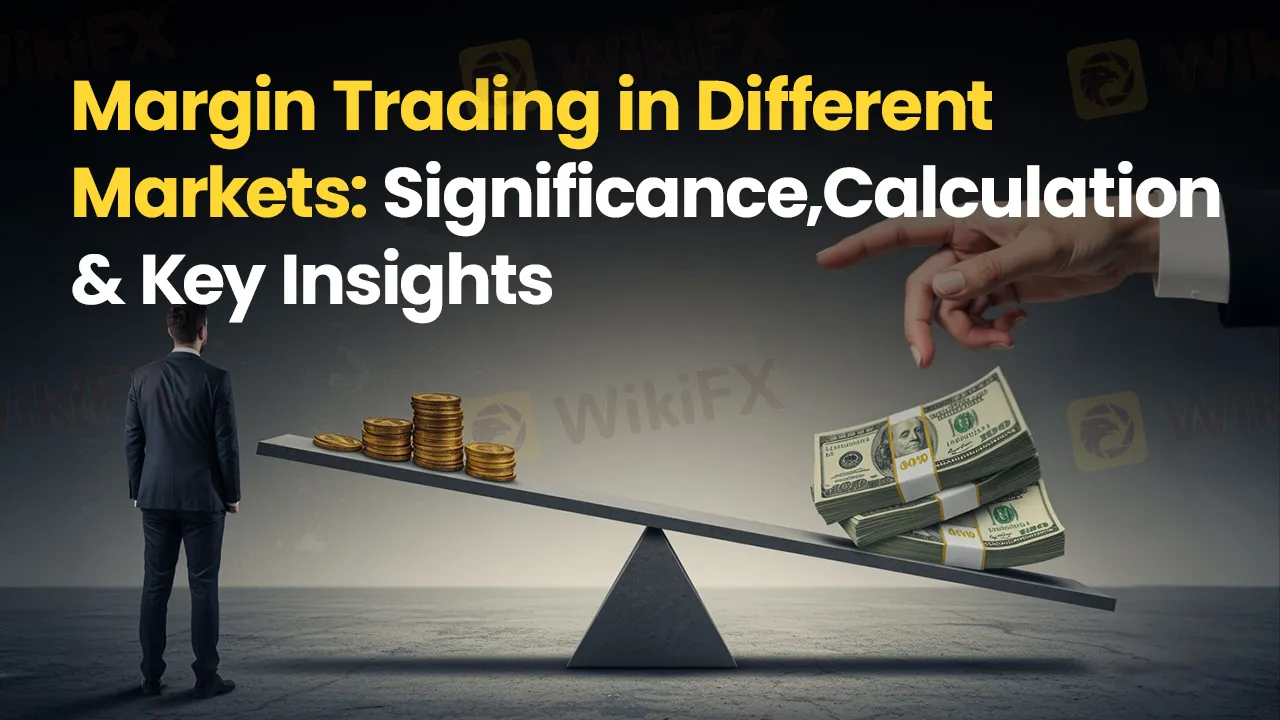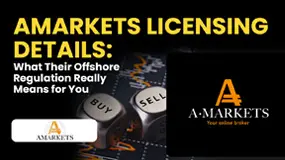Abstract:If you were wondering that margin trading was limited to stock markets, think again! The scope for margin trading also exists in forex and commodity markets. The word ‘margin’ is a headroom traders get to enhance their purchasing power by procuring loans from brokers. Utilizing this facility enables traders to establish significant market positions, potentially yielding substantial profits. Read on to know more about margin trading across several market segments.

If you were wondering that margin trading was limited to stock markets, think again! The scope for margin trading also exists in forex and commodity markets. The word ‘margin’ is a headroom traders get to enhance their purchasing power by procuring loans from brokers. Utilizing this facility enables traders to establish significant market positions, potentially yielding substantial profits. That said, leverage trading with margins also leads to significant risks, making it necessary for you to understand the operational methodology of margin trading across markets such as stocks, forex and commodities.
Margin Trading in Stocks
Margin trading here enhances your ability to invest across stocks compared to when using your capital. Leveraging margin trade funding thus helps increase potential returns. Lets understand the working of margin trading in stocks with an example.
Example - You want to buy stocks worth INR 1 lakh. Your broker demands an initial margin of 50%. Here, you would need to pay INR 50,000 and borrow the remaining INR 50,000 from the broker. The funds borrowed through the broker allow stock traders to gain larger positions. Therefore, stock buying on margin can multiply returns on your investments should the stock price continue to rise. Conversely, if the stock price crashes, the losses can jump as well.
In case you lose due to stock price crashes, you would need to deposit more or sell a portion of holdings to ensure the required equity is sustained in your trading account. You may face substantial losses, especially if the market remains volatile. If you fail to maintain the required equity, you will receive a margin call from the broker.
Margin Trading in Commodities
Commodity trading involves the purchase and sale of physical goods such as oil, gold or agricultural products. Margin trading in commodities lets you gain large positions with small capital. The initial margin requirement, which varies based on commodities, usually remains a small percentage of the overall contract value.
Lets understand this concept using an illustration. You want to buy a crude oil futures contract valued at INR 10 lakh. The initial margin requirement for buying the contract is 5%. In that case, the trader would need to deposit INR 50,000. The rest amount can be procured through leverage. So, if commodity prices jump, the leverage can bring substantial profits. It can also pose massive risks should the prices fall.
Factors Affecting Commodity Prices
A host of factors, including geopolitical scenarios, weather conditions, and supply-demand changes, impact commodity prices. For instance, a drought can reduce the supply of agricultural commodities such as corn or wheat, causing a spike in prices. As a commodity trader, you need to evaluate these factors carefully before placing bets.
Margin Trading in Forex
The forex market offers enhanced liquidity and leverage, making it ideal for margin trading. This trading lets you control substantial positions in currency pairs with reduced upfront investment. Typically, forex brokers provide high leverage so that traders can gain wider positions by investing a small capital. Usually, you would see forex brokers offering a leverage ratio of 100:1, helping traders access a position valued at INR 10 lakh by depositing just INR 10,000.
What makes the forex market unique is that it never sleeps. It works 24x7 and lets you respond to different global events involving key economic data releases in real-time. It thus opens up numerous trading opportunities. At the same time, you can stay informed at all times.
The Working Methodology of Margin Trading in Forex
The margin required in forex constitutes a certain percentage of the overall trade value. Lets understand it with an example. You intend to buy euros worth INR 1 lakh. As the margin requirement is 1%, you just need to deposit INR 1,000. Here, every deposit worth INR 1,000 will help you control currencies worth INR 1 lakh.
There is no denying the profit amplification with margin trading in forex. However, the risks also rise in equal proportion if the market does not move as desired. For instance, if the euro price drops by 1% against the Indian rupee, you would lose your entire margin worth INR 1,000. At the same time, if the price increases by 1%, you would gain INR 1,000.
Summing Up
Margin trading across stocks, commodities, and forex markets can help amplify your investment potential. By using borrowed capital, you can take larger positions and maximize your profit potential. However, the same leverage can also multiply risks. Market volatility, unexpected price movements, and margin calls can quickly erode capital if trades are not managed carefully.
Before diving into margin trading, ensure you fully understand the mechanics, risks, and margin requirements specific to each market.
Want to Join WikiFX Masterminds, Where You Receive the Best Forex Advice?
Simply follow these steps-
1. Scan the QR code placed right at the bottom.
2. Download the WikiFX Pro app.
3. Afterward, tap the ‘Scan’ icon placed at the top right corner
4. Scan the code again.
5. Congrats, you have become a community member.










